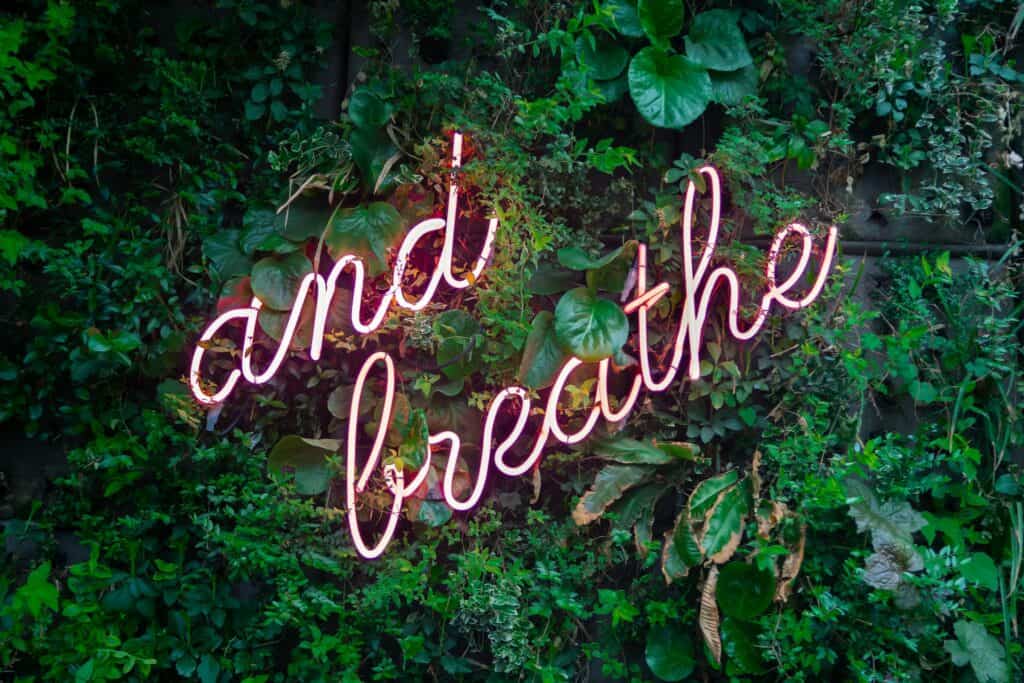Feeling that tightness in your throat? Let’s make it better. So anxiety can manifest itself in many different ways, and one of the most common physical symptoms is tension in the throat muscles. This can lead to difficulty swallowing, tightness in the throat, and even a feeling of constriction or choking. If you are having these symptoms, it’s crucial to learn how to relax your throat muscles in order to ease your anxiety and improve your overall health.
Let’s dive into it.
Here’s How to Relax Your Throat Muscles When You Have Anxiety
Disclaimer
I am not a medical professional and this is not medical advice. It’s the result of my personal experience and research.
Become aware of the tension
The first step in relaxing your throat muscles is to become aware of the tension. This may seem obvious, but many people hold tension in their muscles without even realizing it. When you start to feel that tightness in your throat, take a deep breath and focus on the sensation. Try to identify where the tension is located and how it feels. Isolate it, so to speak.
Try to release the tension
Next, try to release the tension through deep breathing. Sit or stand up straight and breathe in slowly and deeply, filling your lungs and expanding your diaphragm. As you exhale, release the tension in your throat muscles. Repeat this process several times, focusing on your breath and the sensation of your throat muscles relaxing.
Try progressive muscle relaxation
Another effective technique for relaxing your throat muscles is progressive muscle relaxation. This method involves tensing and then relaxing different muscle groups in the body, starting with the feet and working your way up to the head. To use this technique for your throat, slightly tense the muscles in your throat by swallowing or saying the sound “ng” and then release the tension by opening your mouth and letting out a sigh. Repeat this process several times.
You can do a similar process with a meditation app (more on that below).
Visualize
You can also try using visualization techniques to relax your throat muscles. Imagine yourself in a peaceful place, such as a beach or a forest. As you focus on the image, imagine that your throat muscles are relaxing and becoming calmer and calmer. Repeat this visualization several times.
You can also try box breathing
Box breathing, also known as square breathing or four-square breathing, is a relaxation technique that involves breathing in a specific pattern to help reduce stress and anxiety. The method is based on the idea that controlling the breath can help to calm the mind and body. Of course, this includes the throat.
To practice box breathing, you start by finding a comfortable position, sitting or lying down, and closing your eyes. Begin by inhaling through your nose for a count of four. Then, hold your breath for a count of four. Exhale through your nose for a count of four. Lastly, hold your breath again for a count of four before starting the cycle again.
It’s important to keep the count steady and even throughout the exercise, and to ensure that your breathing is deep and slow. With practice, you will find that your breath becomes more controlled and your body more relaxed.
Box breathing can be used in many situations, such as before public speaking, during a yoga class, or when you feel anxious. It can also be used in combination with other relaxation techniques, such as progressive muscle relaxation or visualization.
Here’s a video on how it’s done:
Meditation is another alternative
Specifically, I would try the Headspace app for this. It has lots of exercises where you specifically relax the muscles in your body; this will include relaxing your throat muscles when you have anxiety! Try the anxiety lesson pack after you do all of the introductory stuff.
But don’t worry, the app does the muscle relaxation bit all throughout its many meditation sessions, so you’ll run into it very soon.
And Tai Chi
Tai Chi is not that specific to the throat muscles, but it teaches you to move your entire body in slow, deliberate ways. You learn to perceive and control your entire musculature. This should absolutely help you in terms of relaxing your throat muscles when you have anxiety.
For the longer term, try lifestyle changes
In addition to these techniques, there are other lifestyle changes you can make to reduce tension in your throat muscles. Regular exercise, getting enough sleep, and eating a healthy diet can all help to reduce stress and anxiety. Drinking enough water and avoiding excessive caffeine, alcohol, and other similar drugs can also reduce anxiety, in general.
See a therapist (psychologist)
Finally, it’s important to remember that seeking professional help is an option if you are having chronic tension in your throat muscles. A therapist can help you to identify and work through the underlying causes of your anxiety and can teach you additional techniques for managing and reducing your symptoms.
Also, if you suspect a physical cause, be sure to see an MD or DO.
Summing Up How to Relax Your Throat Muscles When You Have Anxiety
Relaxing your throat muscles can take time and practice, but with the right techniques and mindset, you can learn to ease your anxiety and improve your overall health and wellbeing. Remember to take it slow and not put too much pressure on yourself. And, above all, be kind to yourself and to your body.
Video
To close it out, here is a YouTube video on releasing tension from your throat:
I’m rooting for you! Anxiety sucks, but it can get better 🙂


Leave a Reply